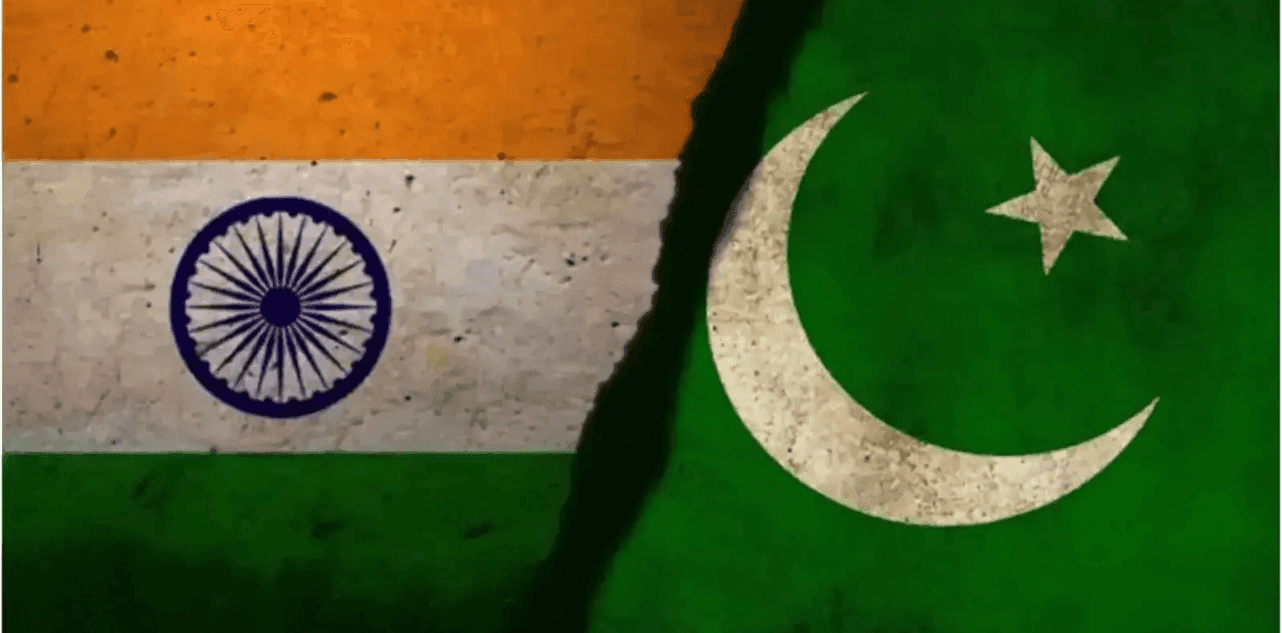Monday 16 February 2026
Pakistan Says Suspension of Indus Water will be 'Act of War'
Share

India-Pakistan tensions boiled over Thursday as Islamabad declared far-reaching retaliatory actions against India's suspension of the Indus Waters Treaty (IWT) after the April 22 Pahalgam terror attack. Issuing any interferencewith water flows as an "act of war," Pakistan suspended the 1972 Simla Agreement, severed all diplomatic and trade relations, closed its airspace to Indian airlines, and cancelled visa exemptions for Indian citizens.
The Pakistani National Security Committee (NSC), which is led by Prime Minister Shehbaz Sharif, issued a stern warning to India: "Any attempt to stop or divert water flows will be an act of war." The warning came after India accused The Resistance Front, a Lashkar-e-Taiba proxy group that is based in Pakistan, of carrying out the Pahalgam attack in Jammu and Kashmir. India's swift responses after the attack were to revoke the Indus Waters Treaty, close the Wagah-Attari border, send back Pakistani military advisers, and reduce the size of the Pakistani High Commission in New Delhi.
Islamabad, rejecting any involvement in the attack and calling the Indian measures “unilateral, unjust, and politically motivated,” moved swiftly to mirror and escalate the actions. All trade with India—including that routed through third countries—was suspended immediately, choking the economic artery of cross-border commerce. The Wagah border was shut for Indian transit, with a strict April 30 cutoff for valid crossings.
In a significant diplomatic setback, Pakistan withdrew SAARC visa exemptions for Indian nationals—except Sikh pilgrims—and directed all Indian nationals to depart the country within 48 hours. Defence advisers were declared persona non grata and instructed to depart by April 30. Pakistan also limited India's High Commission personnel in Islamabad to 30, reciprocating India's staffing limits.
Airspace over Pakistan was closed to all Indian-owned or operated airlines, a move that threatens to disrupt flight routes and further isolate diplomatic communication. While there was no official Indian response to the threat of water flow, government sources stated that Pakistan should first unleash “full force” against cross-border terrorism.
The Indus Waters Treaty, signed in 1960 with the World Bank as guarantor, has long been a rare example of India-Pakistan cooperation—even through three wars. The treaty allocates three rivers to India and three to Pakistan, ensuring an essential water supply for Pakistan’s agriculture-heavy economy. Experts warn that India’s suspension of the IWT may have dire consequences for Pakistan, whose 240 million people heavily rely on the Indus River system.
The rhetoric from Pakistan is not without precedent. In 2002, the chief of the strategic plans division of the Pakistan Army told a European agency that economic strangulation—including naval blockades and the “stopping of the waters of the Indus River”—would cross red lines and could trigger the use of Pakistan’s nuclear arsenal.
As the lower riparian state, Pakistan maintains that the IWT does not permit unilateral withdrawal or suspension. Islamabad believes India’s move is not only provocative but also a violation of an internationally brokered agreement, thus heightening the existential nature of the conflict.
Not just hostility, the crisis has actually destroyed structures built to guarantee peace. The suspension of the Simla Agreement, under which bilateral diplomacy operated, wipes away a key safeguard against major war. The situation on the LoC is going to deteriorate without communication protocol, and worries are that even minor skirmishes can get out of hand uncontrollably.
The collapse of trade and airspace links adds layers of economic pressure on both nations, particularly on traders and transport sectors reliant on the Wagah route. The weakening of the already fragile SAARC framework further damages hopes for regional cooperation and people-to-people contact.
As the standoff escalates, the Indus—once a symbol of collective survival—now flows through a broken landscape where water, war, and diplomacy are inextricably linked.
Newsletter
Stay up to date with all the latest News that affects you in politics, finance and more.